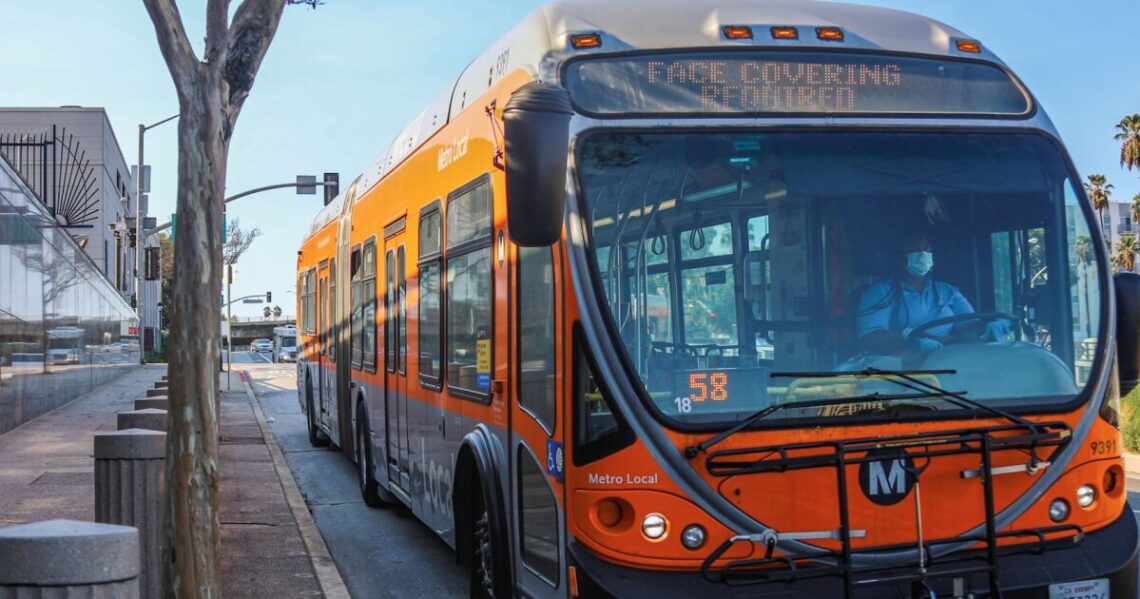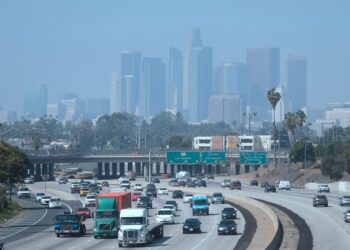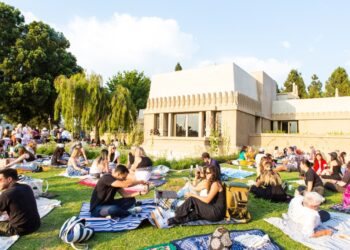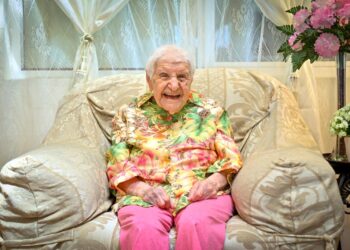As a teen mother without money for a car, Maryann Aguirre relied on buses, trains and her bike to get around.
“In more affluent communities, sometimes riding your bike is seen more as recreational,” said Aguirre, who grew up in Boyle Heights and now lives in Montebello. “In communities of color it’s out of necessity. So access to public transportation was really important for me. Access to safe bike lanes, especially with riding my bike with my daughter, was super important.”
Aguirre has seen firsthand the dangers and stresses of being car-less in a car-centric city. Her experiences led her to becoming an activist first with an all-women-of-color bike collective, then as an advocate with local nonprofit People For Mobility Justice, where she now manages the organization’s campaign for universal fare-free transit.
“Everything is getting more expensive and the thing folks should worry about less at this point is finding ways to effectively and equitably and safely get around L.A.,” Aguirre said.
On Feb. 4, transit agencies around the country, including L.A. Metro, offered a day of free rides to mark Transit Equity Day, a national holiday honoring civil rights icon Rosa Parks. But with costs of living rising and a climate and air pollution crisis driven in large part by pollution from cars and trucks, Aguirre and other transit justice advocates say one day isn’t enough, but that fareless transit should be the norm.
Fighting for “a healthy L.A.”
Aguirre said fareless transit would ease one of the many stressors on L.A. Metro riders, the vast majority of whom are Latino and Black with incomes less than $35,000 a year. Metro offers free and reduced transit to low-income, senior and certain student populations, which you can get information…
Read the full article here







